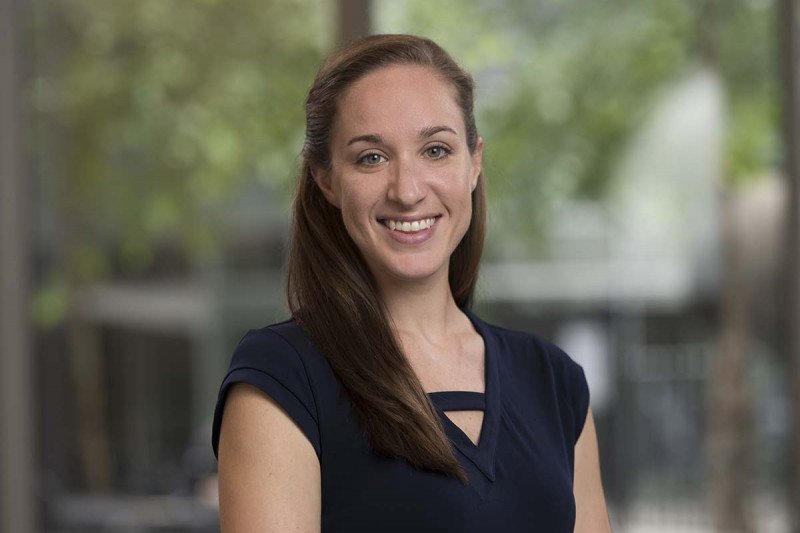
Dr. Linde Miles
Were you always interested in science?
I’ve always been a science nerd. I was raised by a sixth-grade science teacher and a pharmaceutical sales representative, so it was kind of guaranteed that I was going down the science track. I became curious about cancer research in high school after I lost two grandparents suddenly to cancer. One of them I was very close with, and so I felt that cancer development was something that I wanted to understand. My grandfather passed away of small cell lung cancer, which is the cancer type I studied in my PhD research. I wanted to focus my career on something where I felt like I could give back and be able to help people. I think all science research is important, but I was drawn to translational research and specifically cancer research.
Why did you choose MSK for your postdoc, specifically Ross Levine’s lab?
I got my PhD at Johns Hopkins under the mentorship of Charlie Rudin, who’s now the Chief of Thoracic Oncology at MSK. When I was in my third year of grad school, Charlie started his new position at MSK, and I moved to New York City to start the lab here and also finish my graduate research.
When I was looking for a postdoc position, I focused on the New York City area, and there is no better place than MSK to do a postdoc. Support for the postdocs here is second to none. There are so many resources at MSK that you’re not going to find anywhere else.
For my graduate work, I focused on solid tumors, so I wanted to become more well-rounded as a scientist by understanding liquid tumors or blood cancers. I met with Ross once and realized that he and I have similar outlooks and values in terms of what we think is important in research and a career in academia. He was super supportive and very giving of his time from day one. I think the research that he does is groundbreaking in every sense of the word, and the lab environment that he and my labmates have created is just awesome to be a part of. I’ve been lucky to have amazing mentors my entire research career.
What are you working on now in the lab?
Compared to many other cancers, acute myeloid leukemia (AML) is relatively quiet in terms of the number of mutations it usually has. Studies have shown that there are some mutations that occur early, before a patient would ever show symptoms of disease, and then there are certain mutations that occur much later in disease development.
However, there’s no real understanding of whether the order of mutation matters, and if it does matter, what does it affect? Does it change the timeline of how fast a patient gets leukemia? Does it change how the leukemia responds to therapy? If you flipped the order completely on its head, would the patient even get leukemia? We’re trying to understand the different contributions of the mutations to disease progression. Understanding how those mutations cooperate and the impact of mutation order may help us understand what vulnerabilities that cancer has.
Who were your scientific role models growing up?
I went to Penn State University for undergrad and was fortunate to work with Marty Bollinger. I was just starting my sophomore year and was interested in getting lab experience. Marty gave me an opportunity and invited me to work with a grad student in the lab, Megan Matthews.
I worked in the lab for three and a half years and it was an amazing experience. I got so much exposure to what research in academia would be like. Megan is now running her own lab at the University of Pennsylvania. She’s always been one step ahead of me along the academic career path. It’s been awesome having a woman and friend as a mentor like that. I can’t tell you the number of times I’ve called her asking for help or advice. Having her insight has been fantastic.
What is it like being a woman in science at MSK?
I think being a woman in science at MSK has inspired me to step up and try to be a leader. I strive to be a good mentor, especially to young women I work with. I think that every woman in science should be helping other women in science (as well as men in science, too). Good leaders come from good mentors, and it’s our job as mentors to help the people who are coming up behind us.
What do you try to find time for when you’re not in the lab?
Running. That’s my sanity check and my outlet. I started running when I moved to New York. It was a nice way to get outdoors. I have my brain all to myself and can shut everything else out and have time to think.

